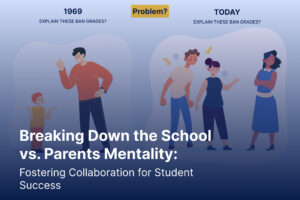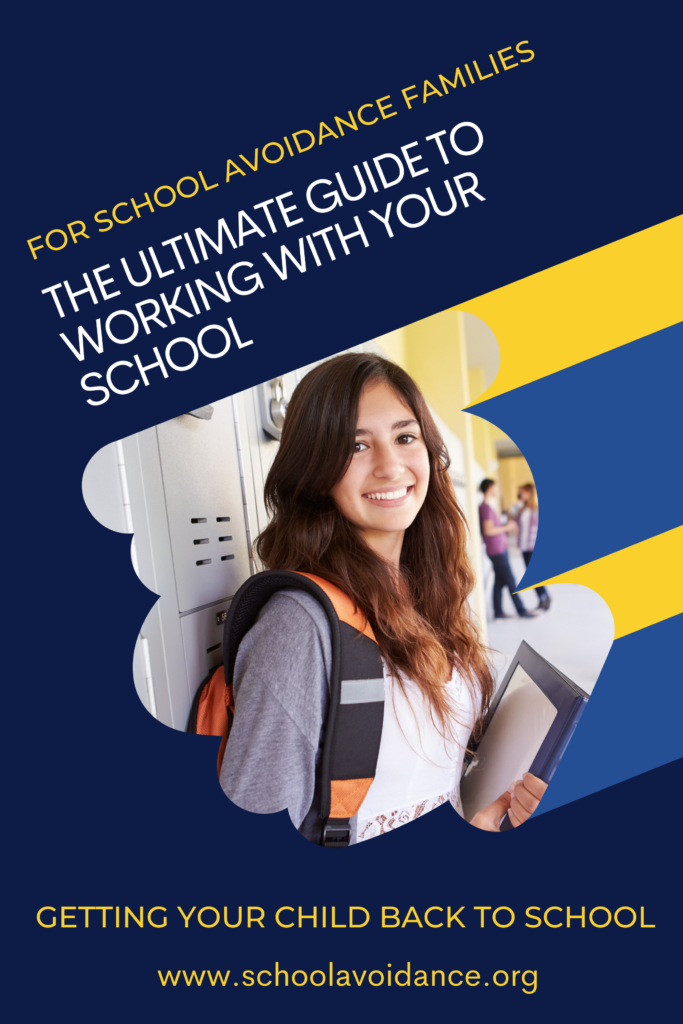This is a helpful article written and posted by Brook Road Academy, a day school in Richmond Virginia that welcomes school refusal kids and their families.
“If you got lost on a dark and windy road, and your GPS didn’t work, you’d probably feel pretty nervous. Which way should you turn? How do you get through this?
Now imagine you found a road sign, but it’s in a foreign language. What now?
Figuring out how to lead your child through school refusal can feel just like that – confusing and scary.
School refusal is often something parents weren’t familiar with until their child started showing signs. Their kids might complain of stomach aches, headaches or body pains, showing such severe anxiety that they stay home from school.
Factors To Consider When Deciding To Pursue A School Refusal Treatment Program
Treating school refusal can sometimes be done successfully at home, with support from your child’s school. But, if you think your child’s behavior is severe, a school refusal treatment program might be necessary.
These four considerations can help you make this serious decision.
1. Chronic School Refusal Behavior
“Chronic” behavior means that your child is demonstrating a persistent pattern of school refusal, lasting weeks or more, with no sign of improvement.
The longer the school refusal behavior lasts, the more difficult it will be for your child to re-enter school.
If your child has been demonstrating school refusal behavior for a long time, it might be time to consult professional help.
2. DIY Strategies Don’t Work
Some parents help their kids overcome school refusal by implementing techniques such as deep breathing, positive role modeling and strict routines. But, many other parents try the same techniques with no success.
If you have exhausted every strategy possible, enlisting help from a school refusal treatment program is a logical next step.
Mental health professionals can help your child – and you – understand the complexities of your
child’s behavior and implement strategies that will be more effective for your child’s unique situation.
3. Impact On Your Child’s Social & Academic Life
School refusal behavior isn’t isolated to morning aches and pains, and it doesn’t affect only the family. Some kids experience such extreme cases of school refusal that they feel unable to function at school. Anxiety associated with school refusal inhibits kids’ ability to learn, and it can isolate them from their peers.
If kids stay home altogether, they can fall behind in school and lose important socialization time
with classmates. The longer this persists, the more gravely it will impact their futures.
Getting professional treatment and understanding how to treat school refusal symptoms will help your child get back onto the right track.
4. Possible Comorbidity
School refusal behavior is often a symptom of a serious mental health issue, such as separation anxiety, social anxiety or depression. Left untreated, kids who suffer from these disorders have been known to self-medicate with drugs or alcohol, fall behind in school and develop other mental health issues later in life.
Seeking the help of a mental health professional early is crucial to the long-term health of your child. Tools such as a School Refusal Assessment Scale can measure the function of school refusal and treat a child more effectively.
What Does A School Refusal Treatment Program Involve?
Any good school refusal treatment program will begin with a thorough evaluation of your child, which will allow them to create the most effective course of treatment, unique to your child’s needs.
Your child’s treatment program will also collaborate with you and your child’s school, as excellent communication among the home, school and the treatment facility is crucial to your child’s success.
But the type of therapy provided will vary depending on the program and on the child.
Therapies used in school refusal treatment programs can include, but are not limited to the following:
Cognitive Behavioral Therapy (CBT)
CBT teaches kids to understand their anxieties and how they are triggered. Kids also learn strategies that help them face anxiety-producing situations and adapt to them.
Part of CBT involves graded exposure, in which kids gradually re-enter anxiety-producing environments in small increments.
Parent Training & Family Therapy
Parent Training and Family Therapy provide support and counseling for more than just the school refusing child.
This type of treatment aims to help all family members gain a better understanding of school refusal and learn the most effective strategies to cope with it.
Relaxation Training
Mental health professionals help school-refusing children learn to work through anxieties by focusing on deep breathing and positive imagery.
Social Skills Training
Kids who feel paralyzed in the social environment of school can benefit from social skills training.
This type of treatment teaches kids strategies to interact with their peers and gain confidence in a social setting.
Dialectical Behavior Therapy (DBT)
DBT teaches kids to use mindfulness and regulate their emotions.
A unique component of this therapy provides parents and kids real-time coaching over the phone or online. This coaching occurs in the morning when school refusing behavior is generally the most acute.
DBT is not yet widely used in school refusal treatment programs, and studies are examining how its effectiveness compares to that of others.”






